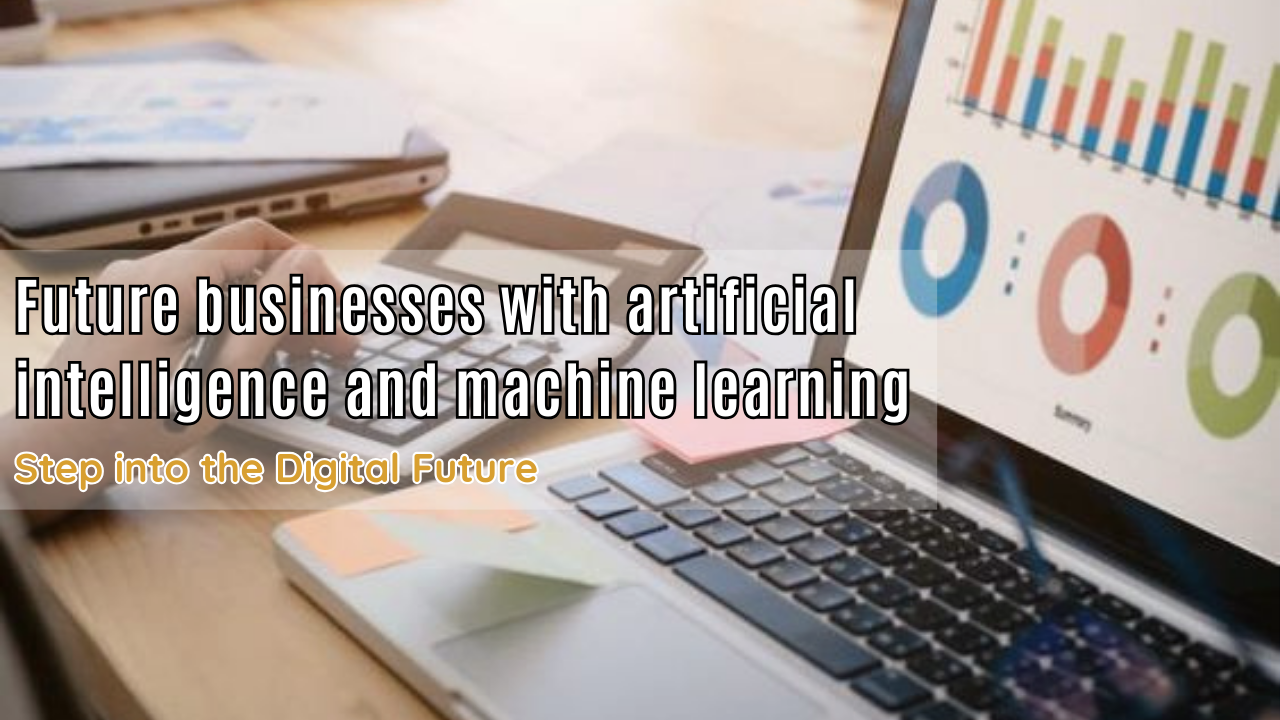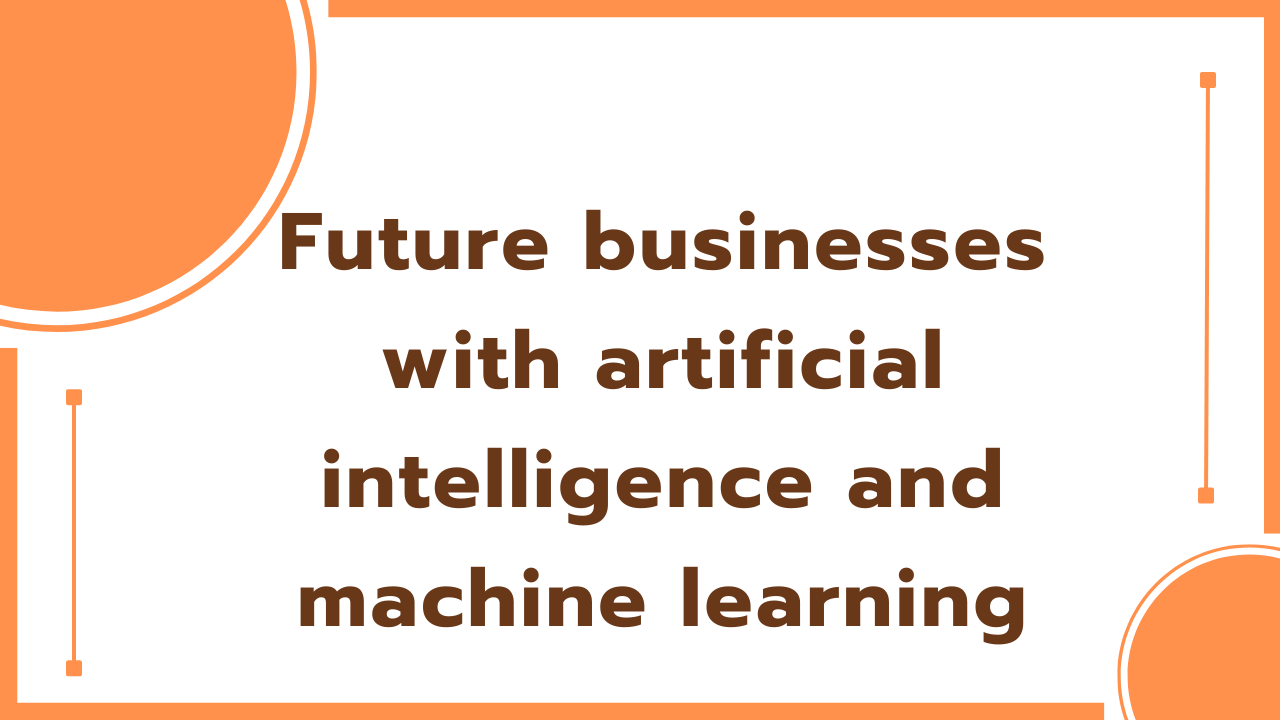How Are Businesses Transformed with Artificial Intelligence and Machine Learning?
Artificial intelligence and machine learning play a central role in the transformation of today's businesses. With the innovative solutions offered by these technologies, businesses optimize their operational processes, increase customer satisfaction and gain competitive advantage. Artificial intelligence, when combined with big data analytics, offers businesses better decision-making processes. Machine learning, on the other hand, helps predict future trends and possible scenarios by analyzing information obtained from data.
These technologies find use in different areas in the business world. For example, in the field of customer service, artificial intelligence-based chatbots provide faster and more effective service by instantly answering customer questions. In finance and accounting departments, machine learning algorithms are used for critical tasks such as fraud detection and risk analysis. In the manufacturing sector, artificial intelligence and machine learning increase efficiency in functions such as quality control and process automation.
Artificial intelligence and machine learning are also leading to significant changes in workforce and business processes. Traditional business models are being replaced by more flexible, data-oriented and digitalized structures. This transformation enables businesses to adapt faster, reduce costs and develop innovative approaches. As a result, artificial intelligence and machine learning not only meet the needs of businesses today but also support their future growth. Therefore, it is of great importance for businesses to prepare themselves for the future by investing in these technologies.
Machine Learning: The Way to Increase Efficiency in Business
Machine learning stands out as one of the most powerful tools to increase efficiency in today's business world. By using machine learning algorithms, businesses optimize their operational processes, use their workforce more effectively and reduce costs. By analyzing large amounts of data, machine learning provides usable insights into business processes and accelerates decision-making processes. For example, machine learning algorithms used in manufacturing processes can increase production efficiency by minimizing errors and thus reduce production costs.
Additionally, machine learning is also used to predict customer behavior. Marketing strategies such as customer segmentation and targeting are made more efficient with machine learning techniques. Machine learning strengthens customer loyalty by delivering personalized content to increase the success of marketing campaigns. In the financial sector, machine learning plays a critical role in risk management and fraud detection. All these applications contribute to the creation of more effective and efficient processes in the business world. Machine learning is becoming the key for businesses to achieve future competitive advantage and achieve sustainable growth.

What are the Future Trends and Opportunities with Artificial Intelligence Supported Business Processes?
Artificial intelligence-supported business processes are critical for businesses to capture future growth and innovation opportunities. Artificial intelligence emerges as an important driving force in the digital transformation of business processes. In the future, artificial intelligence technologies will make business processes more predictable, flexible and automated, allowing companies to adapt faster to market conditions. For example, in supply chain management, AI-based systems offer great advantages in critical areas such as demand forecasting and inventory optimization.
In the field of customer relationship management (CRM), artificial intelligence-supported tools can increase customer satisfaction by managing customer interactions in a more personalized way. Additionally, artificial intelligence in human resources processes makes it possible to make more strategic decisions on talent management, recruitment and employee engagement. In the future, automation solutions supported by artificial intelligence will increase workforce efficiency and allocate more resources for innovation by performing repetitive tasks without human intervention. Artificial intelligence will give businesses greater flexibility to respond faster to changing market dynamics and seize new opportunities. Therefore, investing in AI-powered business processes is considered the key to future success.
What are the Best Artificial Intelligence Applications for Businesses?
Artificial intelligence attracts attention with the numerous applications it offers to transform business processes and increase efficiency of businesses. Artificial intelligence-supported chat bots used in customer services save both time and cost by quickly solving customer problems. Artificial intelligence algorithms used in financial analysis and risk management help detect fraud and optimize investment decisions. In the manufacturing sector, artificial intelligence provides systems that improve quality control processes and predict malfunctions. In the human resources department, artificial intelligence-supported tools speed up recruitment processes and help identify the right candidates. Artificial intelligence in supply chain management makes inventory optimization and logistics processes more efficient. These applications enable businesses to adapt to rapidly changing market conditions and gain competitive advantage.
How to Innovate Your Business with Artificial Intelligence Automation?
AI-based automation is a powerful way for businesses to increase operational efficiency and reduce costs. Automation allows repetitive and time-consuming tasks to be performed without human intervention. For example, AI-powered RPA (Robotic Process Automation) solutions automate routine processes such as accounting and data entry. In this way, employees can focus on more strategic tasks and business processes are completed faster and without errors. Automation with AI is also a major source of innovation in customer service; It increases customer satisfaction by providing personalized recommendations and instant responses. For businesses that want to create an innovative business model for the future, automation with artificial intelligence is the key to sustainable growth and competitiveness.
How Do We Create Competitive Advantage with Data Science and Machine Learning?
Data science and machine learning provide powerful tools for businesses to gain a competitive advantage. Big data analytics provides deep insights in understanding customer behavior and market trends. By analyzing this data, machine learning algorithms predict future trends and help make strategic decisions. For example, to increase the effectiveness of marketing campaigns, machine learning identifies the preferences and needs of target audiences. This allows businesses to better position their products and services. Additionally, data science in supply chain management reduces costs and increases customer satisfaction by optimizing inventory levels. To create competitive advantage, data science and machine learning enable strategic decisions based on accurate information.
What are the Business Models of the Future?
Business models of the future will be based on innovative and flexible structures in the rapidly changing digital age. Advanced technologies such as artificial intelligence, machine learning and blockchain will play a critical role in optimizing business processes, reducing costs and personalizing customer experiences. As subscription-based business models become more common in the delivery of digital products and services, sharing economy platforms will also gradually grow. With the opportunities brought by digitalization, remote working and flexible workforce practices will expand the talent pool while optimizing the costs of businesses. Businesses of the future will focus on adding value to their customers and maintaining competitive advantage by adopting data-driven decision-making processes.
What are the Methods to Improve Customer Experience with Artificial Intelligence?
Artificial intelligence offers many innovative solutions to make customer experience more personalized and effective. Artificial intelligence-based algorithms can analyze customer behavior and predict their preferences and needs. This makes it possible to offer customers the right product or service recommendation at the right time. Additionally, AI-powered chatbots and virtual assistants increase customer satisfaction by instantly resolving customer issues and providing quick feedback. Voice and visual recognition technologies also make customer interactions more accessible and user-friendly. Artificial intelligence optimizes the customer journey at every stage, creating a stronger bond with brands and increasing loyalty.
Revolution in Personnel Management with Artificial Intelligence and Machine Learning
Artificial intelligence and machine learning are revolutionizing human resource management. In recruitment processes, artificial intelligence helps determine the most suitable candidates by analyzing the skills and experience of the candidates. In the field of performance management, machine learning identifies employees' strengths and weaknesses and creates personalized development plans. Artificial intelligence is also used to increase employee engagement and motivation; Analyzes employee satisfaction surveys and manages feedback quickly. These technologies make human resources processes more efficient and strengthen businesses' strategies to attract and retain talented employees. Thus, innovation and effectiveness are ensured in personnel management processes.
How to Make Strategic Decisions with Machine Learning and Data Analytics?
Machine learning and data analytics enable businesses to make more informed and strategic decisions. Big data analytics provides businesses with in-depth insights to understand market trends, customer behavior and operational efficiency. By analyzing this data, machine learning algorithms help businesses predict future risks and opportunities. For example, in financial planning, machine learning contributes to optimizing investment decisions and minimizing risks. In marketing strategies, data analytics measures the effectiveness of campaigns and directs marketing investments in the most efficient way. In the strategic decision-making process, machine learning and data analytics provide businesses with flexibility and speed.
Artificial Intelligence in Business: What are the Security, Ethical and Legal Issues?
While artificial intelligence creates many opportunities in the business world, it also raises security, ethical and legal issues. The use of artificial intelligence systems may raise concerns about data privacy and security. For example, transparency of artificial intelligence algorithms and compliance with data protection policies when processing customer data are important. From an ethical perspective, the impartiality and fairness of artificial intelligence decision-making processes are a critical issue. The effects of automation on the workforce also raises issues of employee rights and occupational safety. Legally, AI applications must comply with regulatory frameworks and be ready for new regulations in this field. It is vital for businesses to shape their artificial intelligence strategies by taking these issues into account for sustainable and responsible growth.




